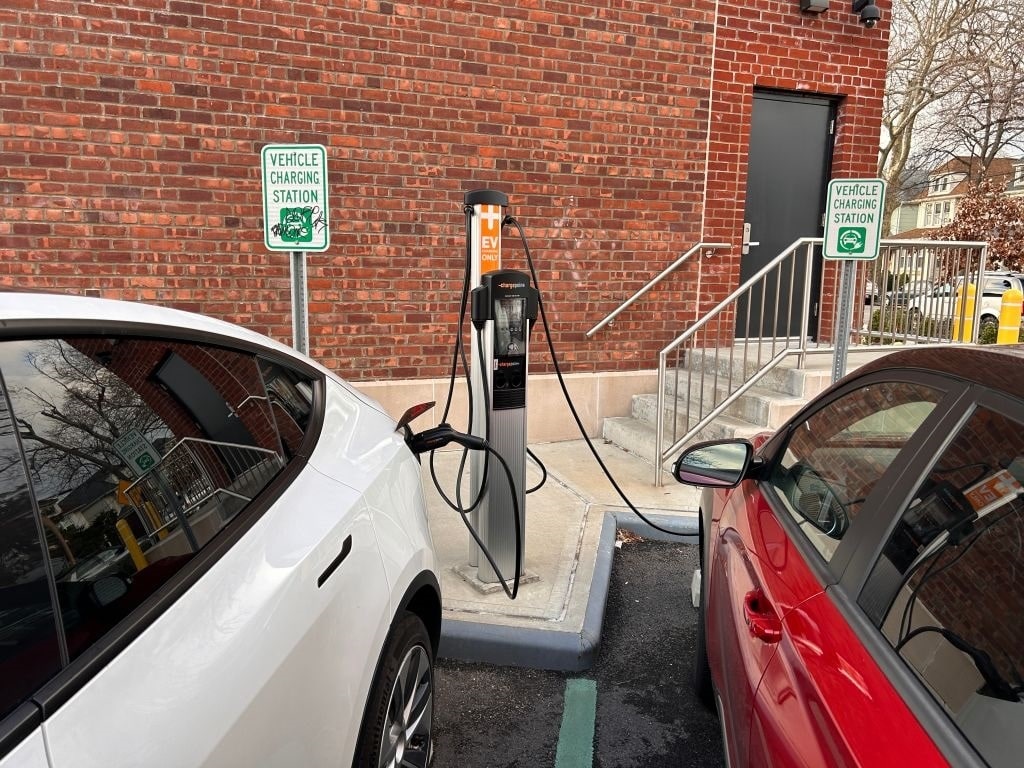It turns out winning in 2024 is more urgent than climate change.
After investing billions of taxpayer dollars in electric vehicles (EVs), the Biden administration is making a sharp dogleg on ambitious targets for implementation. In an effort to court United Auto Workers (UAW) ahead of the 2024 election, President Joe Biden is now seeking a bevy of delays in his climate change plans. From delaying planned EPA climate rules for tailpipe emissions to reevaluating planned dates for EV ownership levels. EV carmakers swallowing massive losses, autoworkers deprived of jobs, and consumers remaining unconvinced to drive electric cars despite incentives and climate marketing were, apparently, not part of the Biden plan.
Economics 101
President Biden has made EV cars and other renewable energy products a top plank of his administration, announcing grand plans for the nation’s transportation and electric grid infrastructure as the cure for climate change, the foundation of a strong economy, and the source of “thousands of high-paying union jobs.” The Inflation Reduction Act (IRA) was substantially focused on these projects. An August 16, 2023, White House Fact Sheet states:
“The Inflation Reduction Act is the most ambitious investment in combating the climate crisis in world history. … The Inflation Reduction Act is accelerating progress to meet America’s climate goals, build a clean energy economy, and strengthen energy security…. EV sales have tripled since President Biden took office, spurred in part by investments in the Inflation Reduction Act to boost clean energy manufacturing and lower EV costs for American families.”

The same document claimed that the IRA’s “clean energy and climate provisions have already created more than 170,000 jobs and could create 1.5 million additional jobs over the next decade.” EV car sales are not comporting with this plan.
Policy Fail Deja Vu
The best-intentioned technocratic plans mostly pave roads to economic Hell. EV car sales are stagnating over high prices for dubious performance (especially in the cold), growing awareness of environmental pollution in manufacturing and disposal (especially of batteries), and complaints of regressive subsidization. The EV car industry failed with a solid “thunk” in the 1990s due to a lack of reliability, high cost, and weak consumer demand.
Consumers are not buying EVs despite Biden’s marketing. Car dealers are losing profits; manufacturers and their supply chains are cutting production; auto workers are rebelling against Biden EPA rules and subsidies for snazzy EVs. Leasing companies are asking for refunds from Tesla and other manufacturers as EV resale prices plummet and rental fleets are downsized due to a lack of customer interest. The market once again prevails over the planners: None of the various forces of economics demand what Biden plans.
Synthetic Markets
Perhaps one of the greatest market failures in product history will prove to be synthetic meats, where intense marketing of futuristic technological possibilities ran aground on impossibilities of production at cost or scale. But this is a free market failure – voluntarily undertaken by risk-taking venture capitalists, who will take their losses while the industry consolidates (if it survives).

(Lindsey Nicholson/UCG/Universal Images Group via Getty Images)
In contrast, partisan regulatory edicts and lavish subsidies favoring EVs using taxpayer dollars for political pageantry are not corrective to their own failures. Indeed, the announcements of delayed implementation of EPA tailpipe emission rules were accompanied by a reaffirmation by the Biden administration that these rules remain the end goal. Mr. Biden will continue pressing destructive economic policies and poor allocation of resources on EVs, squandering good money after bad.
The Biden-Harris administration has pledged to incentivize 67% of cars driven by 2030 to be EVs – but President Biden cannot dictate what cars Americans drive any more than he can control what lever they pull in November 2024. Wooing the UAW may not appease its membership.
Using government regulations and money-printing to force Americans to buy cars they don’t want in the name of saving money is disingenuous. Fox News recently reported that even after lavish federal and state subsidies, “the average cost of an EV is about $52,000, according to the Alliance for Automotive Innovation, while the average subcompact car costs $24,000.” The more government policies warp markets to compel EV ownership, the more low-income and middle-class Americans are coerced into bigger loans for a depreciable asset. All auto prices will rise as increased demand for new and used gasoline-powered cars steadily escalates under EPA rules.
Bidenomics vs Biden Political Optics
President Biden has temporarily paused his efforts to control economic reality in the EV industry to curry favor with union workers and soften a potential rout in the EV market. If being re-elected is more important to Joe Biden than meeting his own emissions goals claimed to be necessary to save the planet, skepticism about the urgency of national EV conversion will increase. Blue-collar Americans won’t be fooled again by promises of great jobs to build pointless products that cost twice as much.

